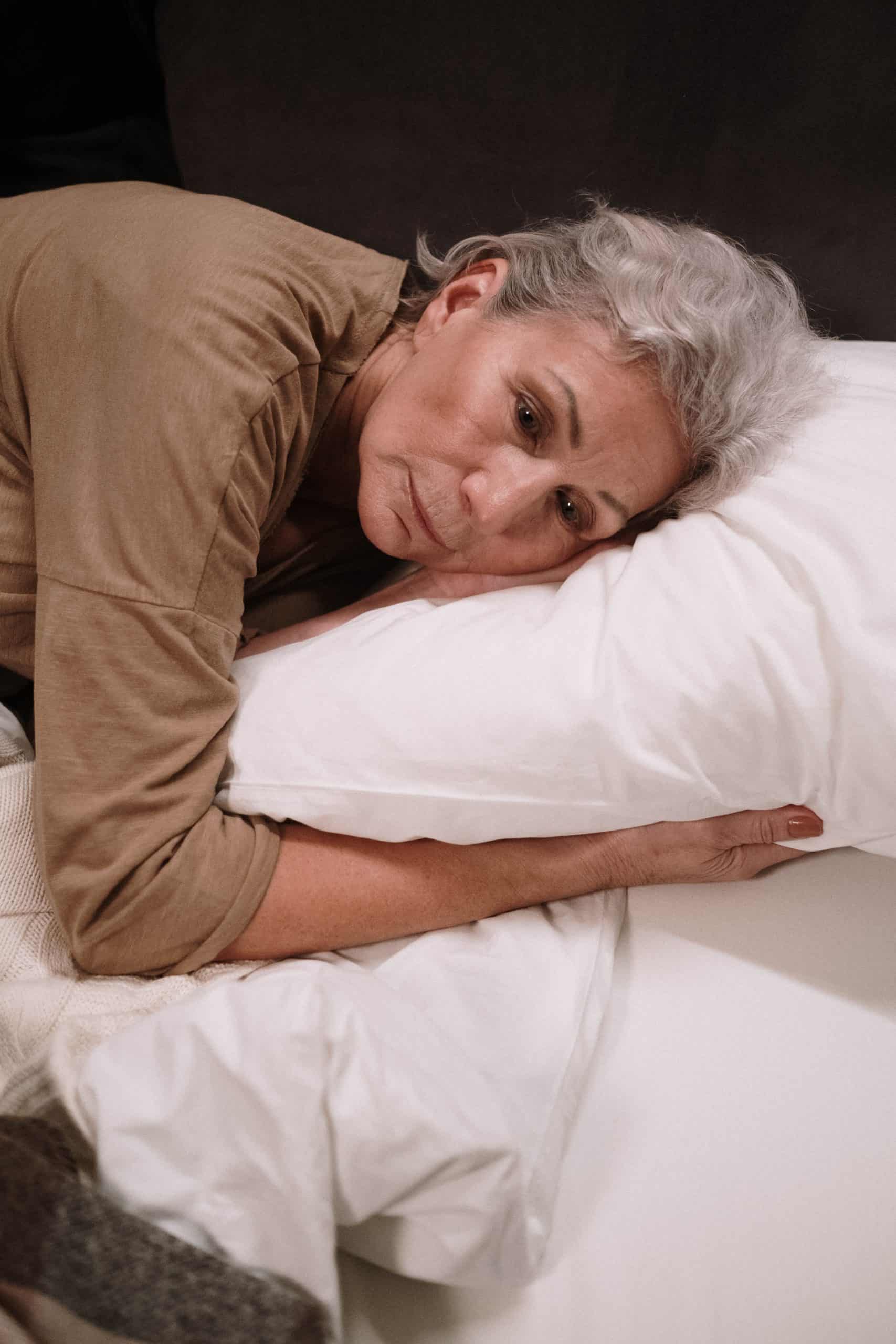What Are The Causes Of Sleeplessness And The Complications Of Poor Sleep Quality In The Elderly?
Pegasus skilled in-home caregivers in Palmdale and elsewhere provide comprehensive services to our clientele. Seniors for whom they care often report difficulty sleeping. Career home health care nurses know the complications of poor sleep quality in the elderly.
An individual who gets a good night’s sleep wakes up feeling:
- Clear-headed
- Energetic
- Positive and optimistic
- Refreshed
Individuals get their best rest when they follow a consistent sleep schedule.
As well as affecting how an individual feels upon awakening, good sleep is physically beneficial. Functions that improve health occur during sleep. These include:
- Consolidating the events of the day and forming memories.
- Increasing the ability to think and make decisions.
- Improving the ability to stay balanced and reduce falling during waking hours.
- Regulating metabolism, which helps keep blood sugar levels under control.
- Relaxing the body and mind to reduce harmful stress.
- Repairing cell damage.
- Secreting hormones, particularly those related to heart health and appetite control.
- Strengthens the immune system to reduce inflammation.
Poor sleep impairs the body’s ability to maintain an individual’s mental and physical health.
As individuals age, they often begin to experience declining health. They also start having sleep difficulties, which then contribute to health issues. Worsening health then keeps them from sleeping well, snaring them in a downward spiral.
Circadian Rhythms Govern The Sleep-Wake Cycle
Human bodies run on internal clocks known as the circadian rhythms. These are 24-hour cycles that govern how the body functions. When to sleep is one of those cycles.
Although circadian rhythms can be disturbed in several ways, the primary cause is insufficient sunlight. Seniors may spend most of their days inside. Encouraging them to spend more time soaking up sunshine often improves their sleep.
Sometimes sleep patterns are established for the convenience of family members. They want their loved one to fit their schedule.
For example, are “night owls” expected to go to bed early? Or “morning larks” expected to sleep late? Those expectations put your patient out of sync with their circadian rhythms, and they lose sleep.
Are your patients watching TV in bed? Or using electronic devices close to bedtime? Not only can those activities be stimulating, but the TV and devices also emit “blue light.”
LED and CFL light bulbs also produce blue light. Blue light significantly disturbs circadian rhythms. That harms an individual’s sleep quality.
Chronic Lack Of Sleep Affects Well-Being
It’s a fallacy that the elderly need less sleep than younger individuals. Everyone is different, but adults age 65 and older generally require 7 – 8 hours each night. Sleeping significantly more or less than that isn’t recommended for most people.
Early studies indicated that “sleeping less than five hours daily or more than nine hours raises the risk of death.” Some contradictory data indicated that excessive sleep might not be harmful. More recent research confirms that less than six hours nightly is correlated with poor health.
Losing sleep even one night affects cell function. The aging process is accelerated, and the risk of disease increases. Both disturbed sleep and excessive sleep appear to increase specific inflammation markers.
The inflammation increases the risk of health conditions that include diabetes and cardiovascular disease. Inadequate sleep also contributes to depression. Statistically, depressed individuals have higher rates of:
- Arthritis
- Cancer
- COPD
- Hypertension
There’s also evidence that individuals who chronically sleep fewer hours each night exhibit changes in brain tissue. The changes are linked to an increased risk of stroke and vascular dementia. Sleep-deprived seniors additionally have an increased risk of suicide, especially if they are depressed.
Sleeplessness Has Many Causes
If your patient reports not getting enough sleep, you may need to play detective. Try to determine the nature of the lack of sleep. That is, are they having trouble falling asleep, waking up during the night, or awakening too early?
Ask your patient or a family member to keep a record of unwanted wakefulness. That can help isolate the cause of the inability to sleep well. Knowing the cause of sleeplessness is essential to improving an individual’s rest.
Is your patient consuming alcohol before bedtime? That helps some individuals fall asleep, but they aren’t able to stay asleep. Are they consuming caffeinated drinks close to bedtime?
Other causes of sleeplessness include health conditions such as painful arthritis. Patients that are depressed or anxious don’t sleep well. Sleep often eludes those with multiple conditions like sleep apnea, Parkinson’s, or restless legs.
Some medications interfere with the sleep cycle. Bedrooms that aren’t dark and uncomfortable beds can keep people awake. Room temperature that is too hot or cold (65 degrees F is ideal) interferes with sleep.
Excessive napping during the day to make up for lost sleep usually compounds the problem. Your questions and observations will help your patient determine the cause of their sleeplessness. You can then assist them with recommendations for improving their sleep quality.
Pegasus is a licensed Home Care Organization and a Joint Commission Accredited Home Health Care organization. Our in-home caregivers in Palmdale and our other locations help our clientele remedy the causes of their sleeplessness. Our career home health care nurses know that improving sleep quality improves well-being.

